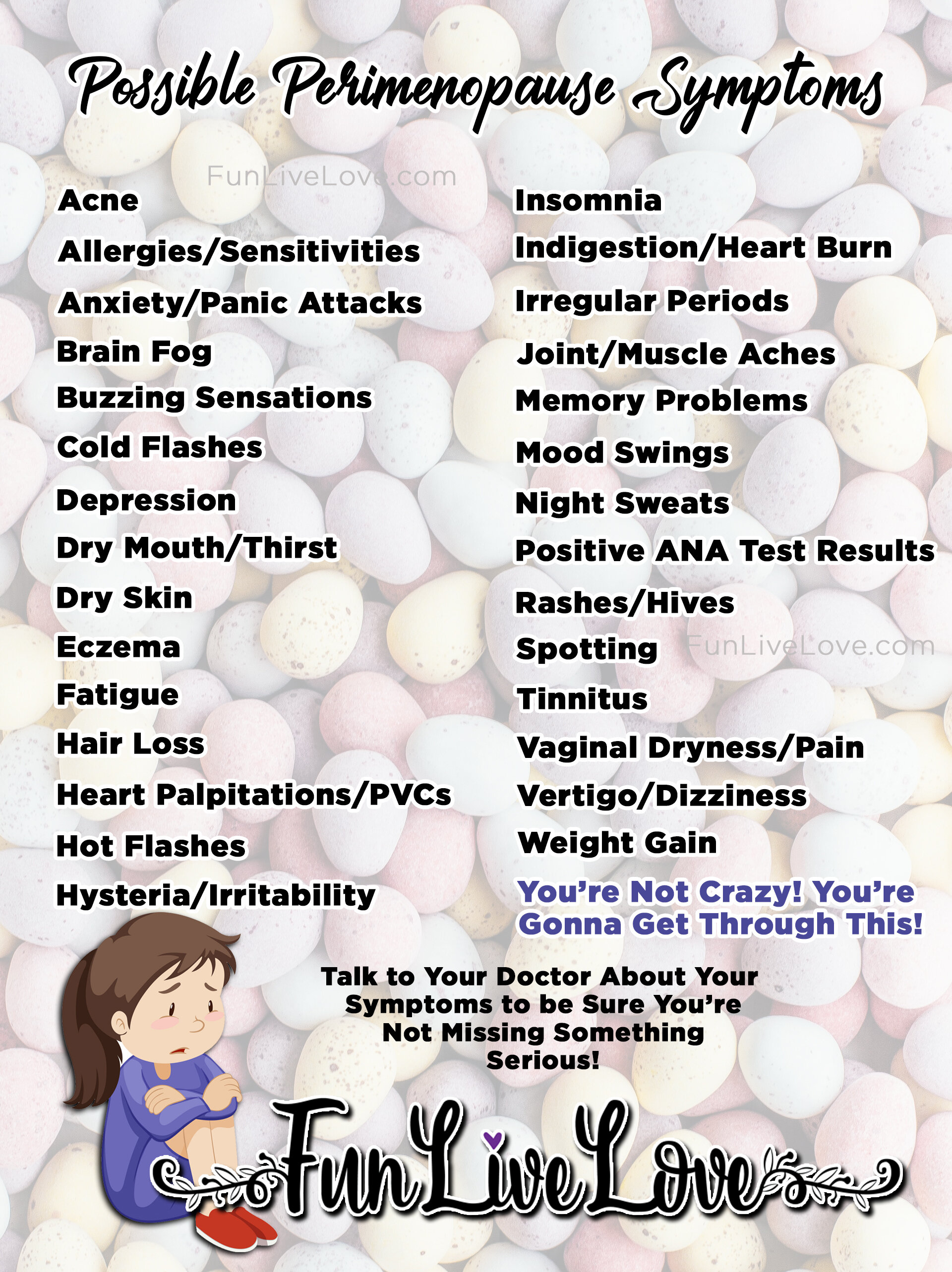Perimenopause Isn’t Just for Old Folks
When most people think of menopause, the first thing that comes to mind is a wrinkled, gray-haired old lady who no longer gets a menstrual period. And while signs of aging are inevitable for anyone who survives long enough on this planet, not everyone who experiences the dreaded “changes” is old.
In fact, the stage of menopause that comes with all of the crazy symptoms like hot flashes and brain fog, known as perimenopause, usually starts to appear in one’s life in the early 40s…while the average age of complete menopause (no period for 12 months straight), is 51 years old.
In a day and age where a gorgeous Jennifer Lopez is 51 years young, and so many more people in their mid-lives are appearing extraordinarily youthful - a person in their 30s, 40s and 50s isn’t quite over-the-hill just yet.
An actual synonymous phrase for menopause is “grand climacteric” which literally translates into the 63rd or the 81st year of a person's life. Insert eye roll.
This may have been true back in the day, but younger people are having hormonal problems, and their age is likely preventing them from getting a proper diagnosis and treatment. No wonder so many are ashamed to talk about menopause when it’s considered a problem only for the elderly.
And even if you are over 60, there is no reason to feel shame; reaching this stage in your life is natural, and means you are still alive and kicking ass! But that doesn’t make dealing with the symptoms easier, and knowing why medical issues are happening can make all the difference in how you approach them.
For instance, if your cardiologist clears you for heart problems and says you’re healthy, why fear the palpitations if they are being caused by hormones? They may be uncomfortable, but they can’t hurt you. And realizing that it’s a benign symptom can alleviate some anxiety.
It seems as if more people are beginning to experience premature perimenopause issues in their 30s, and those who have had ovarian hysterectomy surgeries will experience full on menopause immediately upon recovery. But the symptoms are often blamed on other things like autoimmune disorders, and the classic “I don’t know” idiopathic disease diagnoses, because hardly anyone would believe that a vivacious, young person could possibly be affected by waning hormones.
Patients need to be heard, proper hormonal test levels need to be ordered and reviewed, and the possibility that perhaps one’s symptoms are merely an early onset of perimenopause needs to be considered.
Gone are the days when a person’s body wasn’t being exposed to poisonous pest control in the food supply, harmful chemicals in water treatment, overuse of antibiotics, and so many other pollutants that might make our cells do unusual things. We have no idea what the long-term affect of industry has on humans, but it wouldn’t be shocking to discover that premature menopause is one of them.
The following infographic is a short list of possible symptoms relating to perimenopause that could be affecting you no matter how old you are. Especially if you’ve been diagnosed with endometriosis or polycystic ovary syndrome (PCOS), and had surgical or medicinal treatment.
There could be so many other symptoms that you don’t even realize are being caused by your prematurely aging hormones. It is also important to remember that on average, perimenopause can last anywhere from 4-10 years. So be sure to discuss your symptoms with your doctor!
We encourage you to share this with your loved ones as they may be suffering from perimenopause as well. And we have many other helpful infographics on our Affirmations to Share page. Please feel free to post them on your social media pages to help spread positivity around the world.
Image: Yuris Alhumaydy








